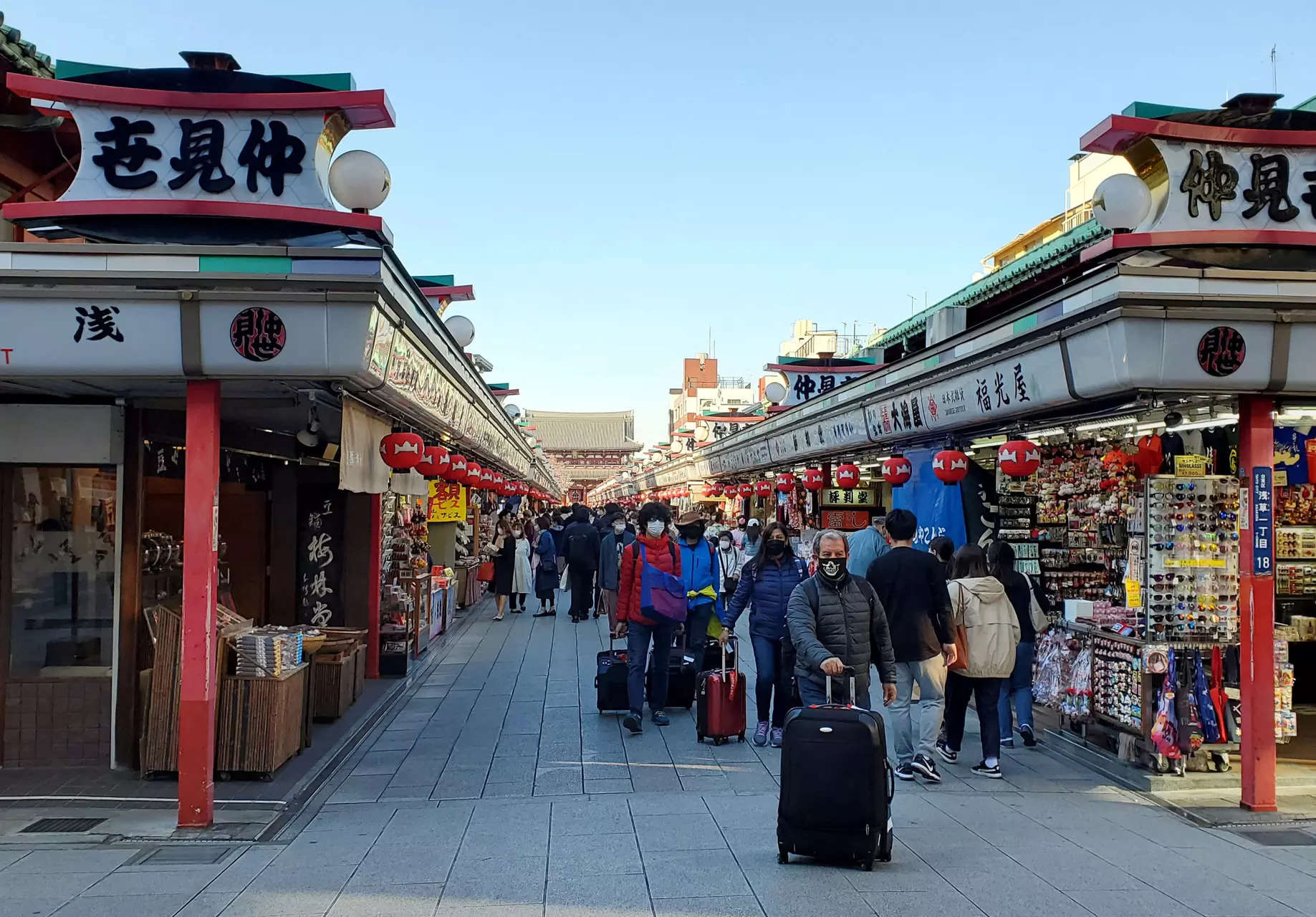
Tokyo sushi stalwart Kyubey is among Japanese retail businesses riding a tourism boom, fuelled by the weak yen and fostering an increase in consumer prices and hopes for a boost to the broader economy.
Inbound visitors rose to 2.07 million in June, the Japan National Tourism Organisation (JNTO) said on July 19, clearing the 2 million mark for the first time since February 2020.
Kyubey, in Tokyo’s upscale Ginza shopping district, is one of the beneficiaries of the better times after surviving a 70% plunge in sales during the Covid-19 pandemic.
“Compared with 2019, business at our restaurants has made a complete comeback or got even better, thanks in part to a rebound in the number of foreign tourists,” said owner and chef Yosuke Imada.
“People from overseas spend up to about 50,000 yen (USD 359). Perhaps they don’t feel it’s that expensive thanks to a weak yen,” Imada said.
Even with a record heat wave in Japan, travellers are pouring in, taking advantage of a slide in the currency that has made holidays the cheapest in decades. The influx is helping stir demand-driven inflation in the world’s third-largest economy, as hotels, restaurants, and retailers find they can charge more without denting sales.
Kyubey in April halted a lunch sale it had offered for years as rising costs for sea urchin, abalone and other shellfish made the price untenable.
But discounts aren’t needed now for Kyubey’s customers, who come mainly from Europe, the United States, and elsewhere in Asia. It is sometimes completely booked out by foreigners, making it hard for Japanese diners to get in, Imada said.
ECONOMIC BOOST
Tourism to Japan all but halted for more than two years during the pandemic. But numbers have risen steadily since the government resumed visa-free travel for many countries in October and scrapped remaining COVID controls on May 8.
For the first six months of the year, 10.7 million tourists arrived, the JNTO said.
Japan saw a record 32 million visitors in 2019, before Covid, and while no one is expecting that this year, Prime Minister Fumio Kishida is hoping a recovery in the industry will add 5 trillion yen a year to the economy.
The APA Hotel chain said bookings had returned to 2019 levels with demand especially high in tourist hot spots like Tokyo’s Shinjuku district.
Tokyo’s Haneda Airport restarted international flights from its Terminal 2 for the first time in three years on Thursday. A Kyoto tourism group sold 400,000 yen (USD 2,870) premium tickets to the city’s famous Gion Festival this week, 20 times the previous high, according to media.
June’s 2.07 million arrival tally was up from 1.9 million in May, though still down 28% from the level in June 2019.
Inbound travellers from the U.S., Europe, Australia, and the Middle East are already above 2019 levels, JNTO data showed.
Visitors from China, previously Japan’s biggest source of tourists, surged 55% to 204,500 in June from the previous month, though still far below 2019 levels.





